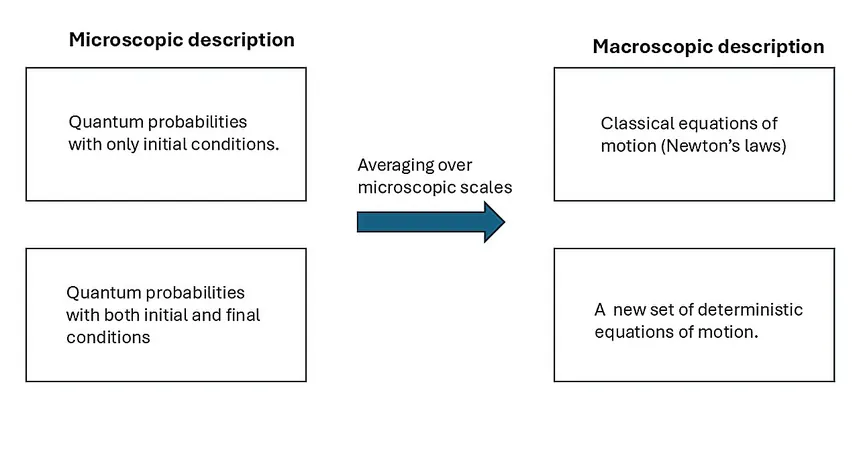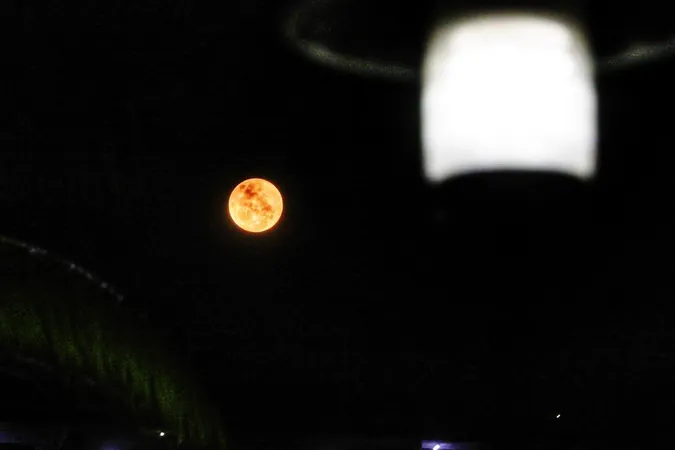
Groundbreaking Insights in Quantum Cosmology Reveal New Explanations for the Universe's Mysterious Expansion
2025-04-07
Author: Ming
Quantum Cosmology and the Accelerating Universe
Quantum cosmology is at the forefront of scientific inquiry into the nature of the universe and its perplexing expansion. A new perspective on this field suggests that incorporating both initial and final conditions can offer a clear explanation for the accelerated expansion of the universe, a phenomenon observed and documented in recent cosmological studies.
The Role of Teleology in Quantum Theory
Historically, teleology— the concept that processes in nature are directed toward a specific goal— has been dismissed in modern scientific discourse as outdated and incompatible with empirical analysis. However, recent research in quantum theory indicates that teleological elements can coexist with quantum physics, especially when the universe is perceived as a comprehensive quantum system.
New Perspectives on Cosmic Acceleration
Recent studies have revealed that quantum cosmologies featuring final conditions tend to suggest a universe that is perpetually accelerating. This finding aligns with the already established observation of cosmic acceleration, which remains one of the most significant puzzles in the current understanding of the cosmos. Traditional explanations for this acceleration often lean on controversial theories that propose new physics, such as dark energy or modifications to general relativity. However, the introduction of final quantum cosmological conditions may provide an explanation absent of these radical hypotheses.
Challenges of Initial Conditions in General Relativity
The historical framework of physics has predominantly focused on initial conditions— a methodology reliant on defining the starting positions and velocities of a particle system to determine future states. Yet, general relativity presents a unique challenge; it reaches cosmic singularities at the Big Bang, where conventional initial conditions are undefined.
Innovative Approaches to Cosmic Singularities
An innovative approach within quantum cosmology seeks to address these singularities through quantum effects. The unique characteristics of quantum states deviate from classical predictions, often portraying them as probabilistic tools rather than definitive attributes of physical entities. Nevertheless, these quantum probabilities can be adapted to include both initial and final states, aligning closely with experimental evidence where final states are established through specific outcomes.
A Singular Quantum Approach to Cosmic Evolution
By treating the universe as a singular, closed quantum system, researchers treat initial and final states as core components of cosmic evolution influenced by an inherent probability framework. This fresh approach has sparked a shift in understanding how the universe's beginnings and endings are entangled in the very fabric of quantum mechanics.
Deterministic Equations and Cosmic Predictions
Notably, the research dives into deterministic limits of quantum probabilities, deriving equations that predict a universe transitioning from a nonaccelerating phase to an accelerating one without relying on the controversial cosmic constant or dark energy. These deterministic equations, while novel, retain compatibility with classical physics and provide a roadmap for cosmological predictions independent of speculative theories regarding quantum gravity.
Implications and Future Directions
The implications of this work, recently published in Physical Review D, are profound. By reinforcing the idea that simply imposing final conditions at a quantum level can induce cosmic acceleration, researchers propose that this phenomenon could indeed be a macroscopic effect rooted in quantum processes.
Additionally, as research progresses, scientists aim to further investigate how these teleological quantum cosmological models hold up against alternative explanations of cosmic acceleration. While the current study addresses the universe's expansion, its implications do not extend effectively to the conditions present during the Big Bang, making further exploration essential.
Future endeavors will utilize more comprehensive quantum frameworks to examine early cosmic conditions and connect them with observations of the Cosmic Microwave Background and primordial gravitational waves. This research could shape our broader understanding of the universe's inception and evolution.
Conclusion
As this field continues to develop, researchers are poised to unveil further insights that may fundamentally alter our comprehension of the universe's structure and destiny. Stay tuned for more thrilling discoveries that push the boundaries of modern physics!






 Brasil (PT)
Brasil (PT)
 Canada (EN)
Canada (EN)
 Chile (ES)
Chile (ES)
 Česko (CS)
Česko (CS)
 대한민국 (KO)
대한민국 (KO)
 España (ES)
España (ES)
 France (FR)
France (FR)
 Hong Kong (EN)
Hong Kong (EN)
 Italia (IT)
Italia (IT)
 日本 (JA)
日本 (JA)
 Magyarország (HU)
Magyarország (HU)
 Norge (NO)
Norge (NO)
 Polska (PL)
Polska (PL)
 Schweiz (DE)
Schweiz (DE)
 Singapore (EN)
Singapore (EN)
 Sverige (SV)
Sverige (SV)
 Suomi (FI)
Suomi (FI)
 Türkiye (TR)
Türkiye (TR)
 الإمارات العربية المتحدة (AR)
الإمارات العربية المتحدة (AR)